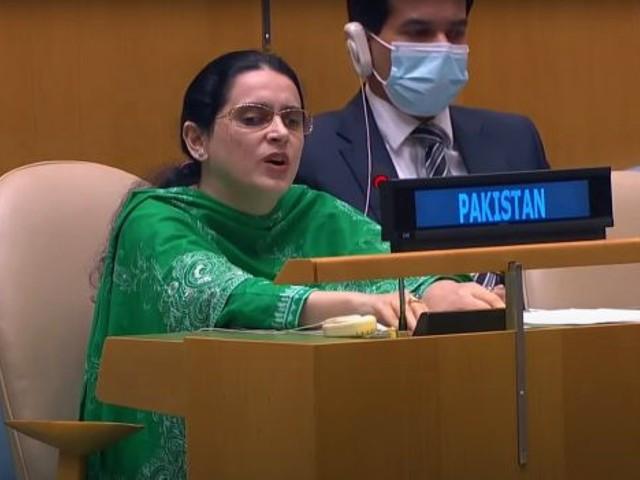The United Nations:
Pakistan has reaffirmed its unshakable belief in multilateralism, preventive diplomacy and the peaceful resolution of disputes while the United Nations General Assembly commemorated the 80th anniversary of the Charter of the United Nations, calling it “pillar of international peace, justice and cooperation”.
“That this anniversary is not only a moment of memory, but also a call for action – a collective commitment to restore confidence in multilateralism and to revitalize the very ideals on which the United Nations was founded,” said Pakistani delegate Saima Saleem in the special meeting of the Assembly, highlighting the exceptional problems of Palestine and Kashmir.
Representatives of 50 nations signed the Charter in San Francisco, California, on June 26, 1945, Poland signing later, bringing the total to 51 founding members, according to the UN. He entered into force on October 24, 1945, after ratification by the signatory nations.
From 50 members in 1945, United Nations members now increased to 193.
At the start of the commemoration, the president of the general assembly, Philemon Yang, described the moment as “symbolic” but dark, noting in progress in class in Gaza, Ukraine and Sudan, and the growing challenges of multilateralism.
He urged nations to choose diplomacy rather than strength and to maintain the vision of peace and human dignity of the charter: “We must grasp the moment and choose dialogue and diplomacy instead of destructive wars.”
Ms. Saleem, advisor to the Pakistani mission of the UN, said in the eight decades since 1945, the UN served as a headlight of hope for countless nations and peoples.
“The principles of the Charter-sovereign equality, the right to self-determination, the non-use of force, respect for human rights and the peaceful settlement of disputes are also vital and relevant today as they were in San Francisco,” she said.
“However, the world we live in is responsible for new and complex challenges: current conflicts, foreign occupation, climate change, inequalities and violations of the demand for international law renewed the commitment to the Charter – not with words alone, but in collective action,” said the Pakistani delegate.
“Nowhere is this is no longer urgent than in the case of long-standing disputes such as Jammu and Kashmir and Palestine, where the non-nomination of the Security Council resolutions continues to refuse people their right to self-determination.”




